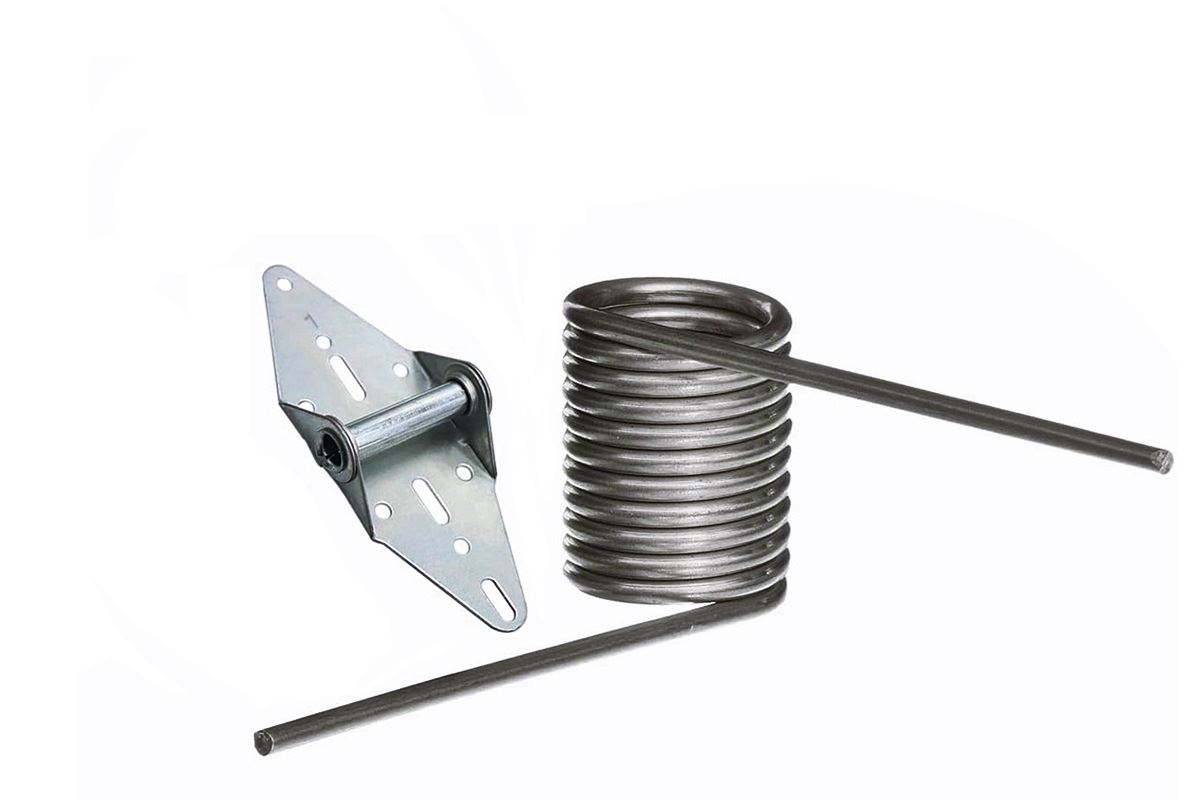Top Garage Door Hinges and Spring Issues (and Solutions)

If you have recently invested in a new garage door installation in Loveland and would like to enjoy many years of trouble-free service, it is well worth learning how to fix the most common issues caused by garage door hinges and springs. In this article, prepared in consultation with our garage door repair specialists, you’ll learn all about the most frequently encountered issues caused by these components, together with the most effective solutions, as recommended by our experienced technicians. Of course, if you are not keen on the idea of tackling such repair jobs by yourself, or you should happen to come across a more serious issue, you are more than welcome to contact us by phone or email. We provide a comprehensive garage door repair service to customers in Loveland, CO and the surrounding area.
Our Top Garage Door Repair Tips for Issues Caused by Hinges
We’re going to start by looking at problems that can be caused by the hinges in between the panels of overhead doors. These small, unobtrusive components are often overlooked by homeowners during routine maintenance inspections and this neglect can lead to one or more of the following issues:
- Squeaking Noises When Operating the Door – By far and away the most commonly encountered issue with garage door hinges is the wide range of squeaking noises they can make when not cleaned and lubricated on a regular basis. The solution is very simple in most cases: simply apply some WD40 to the offending hinges and all will be well. For more severe cases, we recommend scrubbing the hinges with a small wire brush after spraying with WD40, in order to remove surface rust. Afterward, wipe them clean and apply a quality lubricant.
- Jerky Movements Between Panels When Opening and Closing the Door – If the panels of your door seem to be straining against each other as the door is opening or closing, and moving in an awkward, jerking manner, this could well be due to stuck hinge pins. If cleaning and lubricating does not fix this problem, you can either remove each pin and replace it or replace each affected hinge with a completely new one. However, this is not a task that every homeowner will be happy to tackle so please don’t hesitate to call your local overhead door company if you would rather have a professional take care of it.
- Rattling Panels During Operation – Panels that rattle and shake as the door is opened can be a major annoyance, especially if you often enter or leave your home at times when your neighbors may be sleeping. Fortunately, the most common cause is also one of the easiest to fix: loose hinges. If your overhead door panels start to shake and rattle during operation, simply tighten up the carriage bolts that hold them in place and the problem should be resolved. If this is not the case, we recommend contacting your nearest repair specialists for professional assistance.
These are the hinge issues you are most likely to encounter with newer garage door installations. If you have an older door that has been in use for several years, you may also come across a broken hinge on occasion. In most instances, these can be replaced quite easily by anyone with basic DIY skills but, again, please don’t hesitate to contact a local repair technician if you’d rather not try to fix this type of issue yourself.
Our Top Garage Door Repair Tips for Issues Caused by Springs
There are two main types of garage door springs in use today: torsion springs and extension springs. If you look above your garage door and see two large springs, each one stretching from the middle to the side, (parallel with the top of the garage door), you have torsion springs. If, on the other hand, you see two long springs running from the garage door towards the rear of your garage, above the roller tracks, you have extension springs. In either case, the following advice can be followed to fix commonly encountered issues caused by overhead door springs:
- Door Struggles to Close Completely and Opens Too Quickly – The most likely cause of this type of behavior is too little tension in the torsion or extension springs. Fortunately, this is not difficult to solve as long as you have the right tools to hand and are aware of the safety precautions that need to be taken when working on springs under tension (in the case of torsion springs). If you would rather not try to increase the spring tension yourself, contact your local repair team and arrange for them to come and perform the work.
- Door Struggles to Open Completely and Closes Too Quickly – In cases where this type of behavior manifests, the cause is normally too much tension in the torsion/extension springs. As with the previous issue, the symptoms can be resolved by adjusting the springs in question. For torsion springs, the job must again be tackled with the springs under full tension, i.e. when the door is fully closed. If you do not have the necessary tools or you are not sure how to reduce the amount of tension in torsion/extension springs, look for a reputable overhead door company in your area and ask them to perform the maintenance work for you.
- Door Opens and Closes Unevenly – When one side of the door opens or closes more easily than the other, causing uneven operation, this is almost always because the tension in the springs (torsion or extension) is unequal. In other words, one spring operates under more tension than the other. The solution is to adjust the tension of the springs until they are once more in equilibrium.
